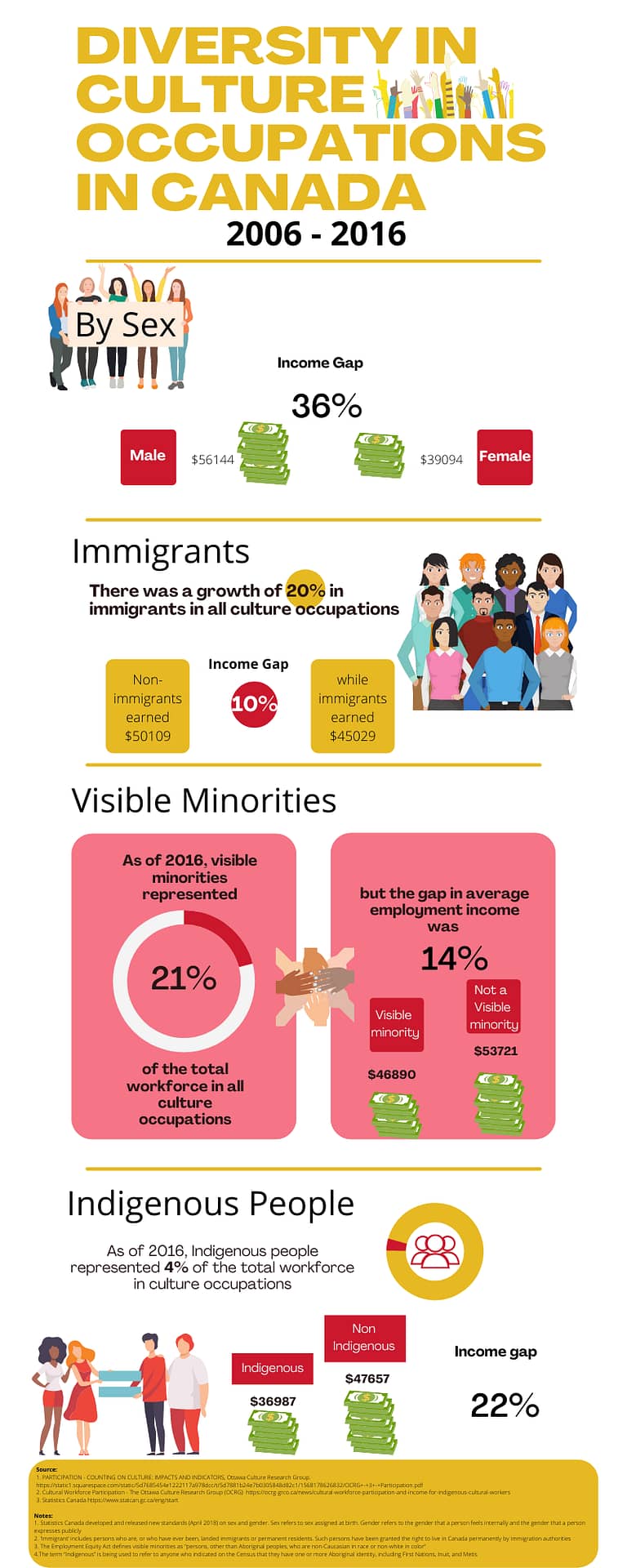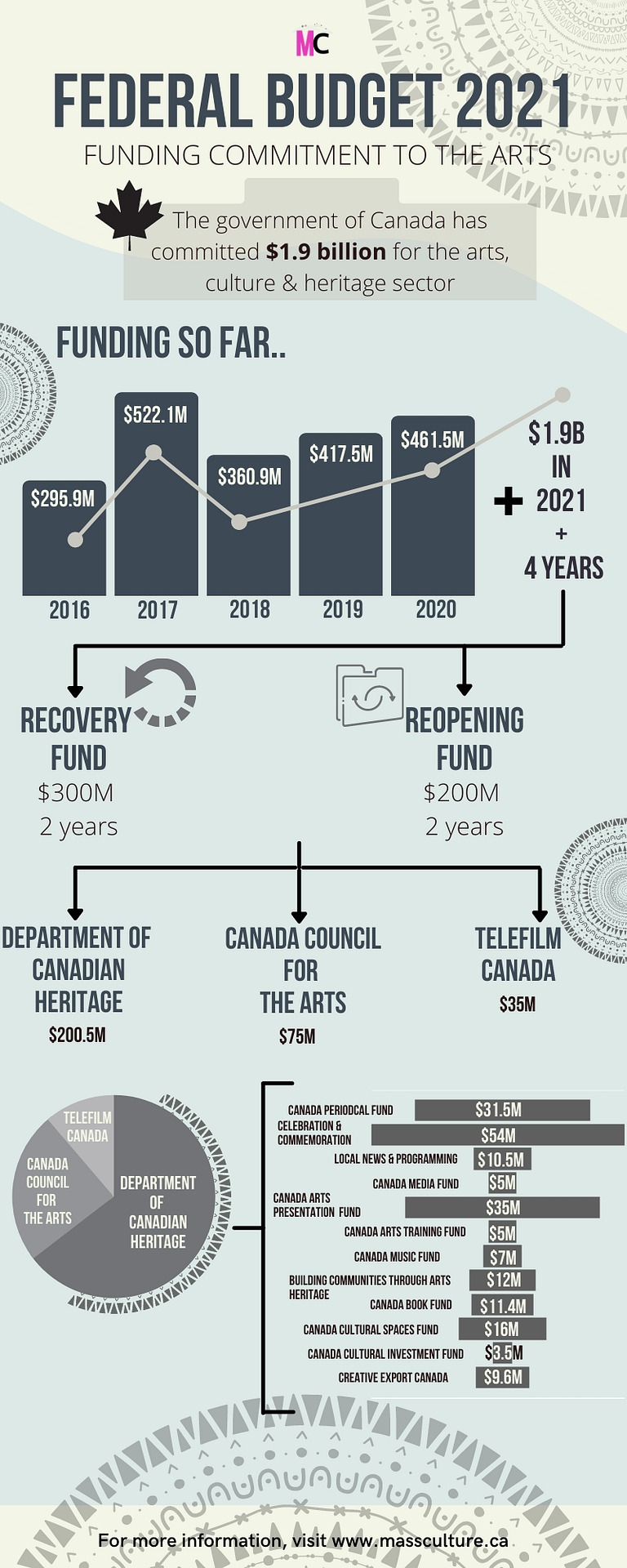Harnessing the power of research to learn and generate new insights, enabling the arts community to be strategic, focused and adaptive.
Harnessing the power of research to learn and generate new insights, enabling the arts community to be strategic, focused and adaptive.
Featured on this page are the Culture Chapter from the Centre for Policy Alternatives’ Alternative Federal Budget as well as accompanying infographics.
Additionally, you can find video and image responses from the arts sector prompted by discussion points related to the Alternative Federal Budget. These include conversations touching on building back better in the context of individuals in the arts and culture sector, creating value for cultural spaces, expanding community infrastructure to include cultural infrastructure, making activities more accessible to varying communities and understanding how artists can be better supported.
Thank you to those who contributed their time: Ben Dick, Naomi Stokes, Neeha Dsouza, Louis-Etienne Dubois, Amy Gottung, Emmanuel Bochud, charles c. smith and Jason Samilski.

Diversity in culture occupations in Canada, 2006 – 2016
By sex:
Immigrants:
Visible Minorities
Indigenous People
Sources:
PARTICIPATION – COUNTING ON CULTURE: IMPACTS AND INDICATORS, Ottawa Culture Research Group. https://static1.squarespace.com/static/5d7685454e1222117a978dcc/t/5d7881b24e7b0305848d82c1/1568178626832/OCRG+-+3+-+Participation.pdf
Cultural Workforce Participation – The Ottawa Culture Research Group (OCRG). https://ocrg-grco.ca/news/cultural-workforce-participation-and-income-for-indigenous-cultural-workers
Statistics Canada. https://www.statcan.gc.ca/eng/start

Federal Budget 2021: Funding Commitment to the Arts
The government of Canada has committed $1.9 billion for the arts, culture and heritage sector.
Funding so far…
For more information, visit www.massculture.ca.
Regarding [...] intergovernmental cooperation, I would add cross-sectoral collaboration. The innovation and creativity within the arts sector are very under-leveraged assets. This is at a time when we face historic concurrent crises. The federal government should, for example, acknowledge that reducing carbon emissions requires large-scale cultural and paradigm shifts, and invest in cross-sectoral collaborations between the artists, Indigenous communities, climate researchers, social and behavioural scientists, industry, and organizations.
Jason Samilski, Managing Director, CARFAC Ontario
CPAMO has been championing work across Canada to engage artists and arts organizations to embed equity, anti-racism, anti-oppression in all of their efforts as a pathway to pluralism. [...] we have created toolkits, conducted research, coordinated national, provincial and local forums, seminars, skill-building workshops on such matters as: conflict resolution and stopping workplace harassment, diversifying staff/board and volunteers, community engagement, and developing policies/procedures and actions plans on these issues. [...] we continue to work with the constant concern about precarity for IBPOC, Deaf, disabled and other marginlized artists and arts organizations since it is only recently that funders have turned their attention to us. This leaves us with a question about surivival and having to wait for equity initiatives of funding bodies to support substantive change - not later but now!
charles c. smith, Executive Director, Cultural Pluralism in the Arts Movement Ontario
You have successfully joined our subscriber list.
Copyright © 2025 Mass Culture | Mobilisation culturelle